MercoPress. South Atlantic News Agency
Tag: Xi Jinping
-
Monday, May 15th 2017 - 11:11 UTC
Macri begins official visit to China and attends development forum with 27 world leaders

Argentine president Mauricio Macri, First Lady Juliana Awada, and members of the official delegation were received on Sunday by Chinese president Xi Jinping and his wife at the Great Palace of the People, where they were hosted together with 27 world leaders in the framework of the One Belt, One Road, OBOR, Beijing's ambitious international cooperation forum.
-
Saturday, April 8th 2017 - 10:07 UTC
Trump describes “tremendous progress” in talks with Xi; state visit to China later this year

President Donald Trump has accepted his counterpart Xi Jinping's invitation to make a visit to China, said Secretary of State Rex Tillerson. Mr. Trump is hosting the Chinese president for a two-day visit at his Mar-a-Lago estate in Florida.
-
Friday, April 7th 2017 - 10:31 UTC
“I have gotten nothing” from Xi, but a strong friendship has developed, Trump admits

United States President Donald Trump said to light laughter at a Thursday evening dinner he hosted for Chinese President Xi Jinping that after a long discussion, “I have gotten nothing, absolutely nothing” from his guest. But Trump added that the two leaders, who chatted earlier at the president’s Florida resort, had quickly “developed a friendship,” and he predicted that “long term we’re going to have a very, very great relationship and I look very much forward to it.”
-
Saturday, February 11th 2017 - 08:20 UTC
Trump pledges to honor the “One China” following a phone call with President Xi
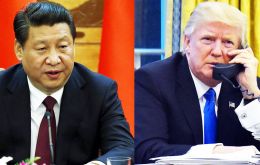
US President Donald Trump has climbed down on past threats and agreed to honour the so-called “One China” policy. He backed the long-standing agreement during a call with Chinese President Xi Jinping, the White House said. The One China policy states that there is only one Chinese government.
-
Tuesday, January 17th 2017 - 17:32 UTC
Xi emphatic tells Davos “we say no to protectionism”; migration crisis caused by war and conflict
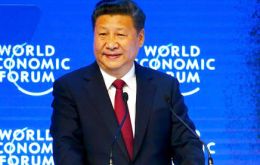
China's president Xi told the World Economic Forum in Davos on Monday that the “migrant crisis had been caused by war, conflict and regional turbulence,” not globalization. Similarly, the 2007/8 financial crisis was caused by “the excessive pursuit of profits and a lack of economic regulations,” he said.
-
Monday, November 28th 2016 - 07:54 UTC
Reactions to Fidel Castro's legacy: as controversial as in life
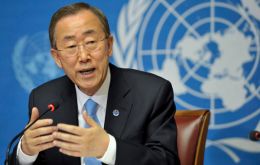
World reactions to the death of the Cuban Revolution leader Fidel Castro who ruled the island for half a century have been as controversial as his life and influence in world affairs. “His revolutionary ideals left few indifferent”, Ban Ki-moon was quoted, and Pope Francis was more diplomatic and referred to the sad news and promised prayers to Cuba's patron Virgin.
-
Wednesday, November 23rd 2016 - 10:59 UTC
Partnership with Latin America and the Caribbean strategic for China
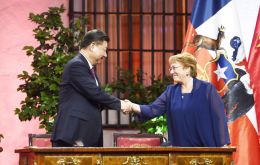
Chinese President said that his country's alliance with Latin America and Caribbean countries was of “strategic” importance as he opened the Economic Commission for Latin America and the Caribbean (ECLAC) Media Leaders Summit in Santiago.
-
Tuesday, November 8th 2016 - 14:50 UTC
Something is happening in China: new Finance and State Security ministers
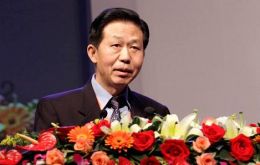
China appointed a new finance minister on Monday who is expected to maintain an expansionary fiscal policy and push reforms to put a lid on rising debt levels in the economy. Xiao Jie, a former tax chief and Minister of Finance deputy minister, was named minister of finance, the official Xinhua news agency said on Monday.
-
Monday, October 24th 2016 - 18:11 UTC
First Mercosur test for Uruguay´s free trade agreement negotiations with China
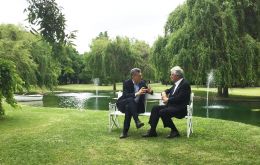
Uruguay and Argentina, and their cabinets will be meeting this Monday in Buenos Aires to address a bilateral agenda, which was agreed long before hand, but the real issue will not necessarily be trade, dredging canals, pulp mills, customs or facilitating people's movement, but rather the negotiations for a free trade agreement which supposedly Uruguay is about to begin discussing with China.
-
Monday, September 5th 2016 - 09:09 UTC
Macri targets Chinese tourists; no need of a visa to visit Argentina
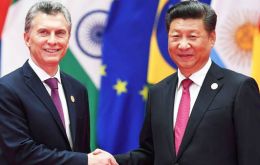
Argentine president Mauricio Macri announced in China that besides boosting and balancing bilateral trade and confirming the infrastructure and energy deals reached by his predecessor, Chinese tourists will no longer need visas to visit Argentina.
